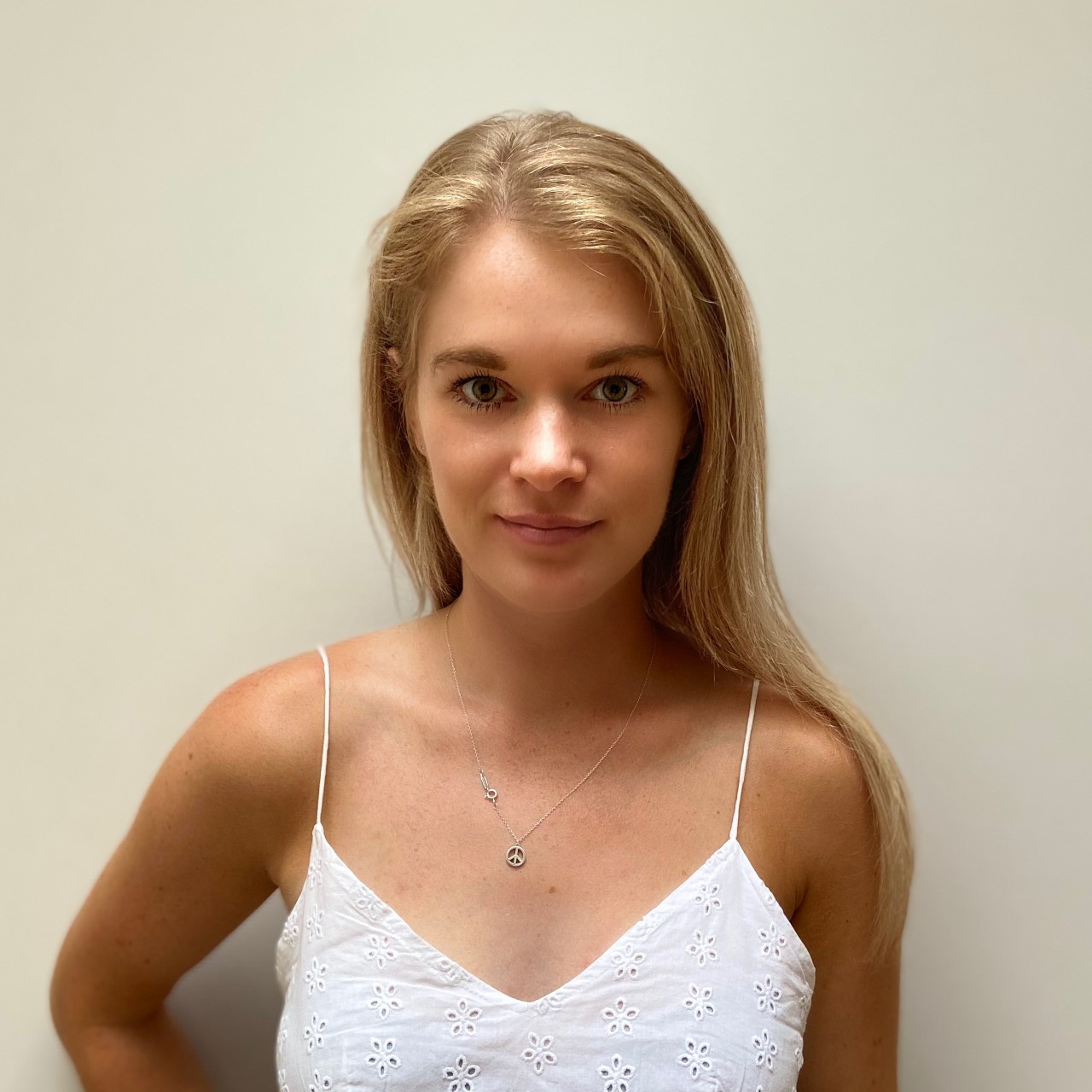Peloton's newest instructor is changing the fitness industry for the better
We sat spoke to Logan Aldridge about his journey into fitness, adaptive training, and the power of a positive mindset

If you want to feel inspired, just look at Logan Aldridge’s CV — after losing his arm in an accident at the age of 13, Aldridge has gone on to compete as a para-athlete in the CrossFit Games, deadlift 500 pounds, set up the Adaptive Training Academy, and now, he’s Peloton’s latest instructor. He’s also one of the most positive people I’ve ever met.
“I've had such a such a wildly profound exposure to what fitness can do for people”, Aldridge tells me when I ask him what exercise means to him. His adaptive training classes are designed to make fitness available and accessible by offering personalized movements and exercises for those who are differently abled.
Launching on the Peloton platform earlier this June, the classes fall under two categories — seated and standing and span across the HIIT, Cardio, Strength, and Stretching genres. They’re intended for all adaptive athletes, and they are only the start of Aldridge’s journey as a Peloton instructor.
Aldridge is living proof that the secret to overcoming a challenge is to adapt. “I'm here, I believe, for something far bigger than myself,” he says. Read on to find out what happened when we sat down to talk about his journey, his training, and his plans for Peloton.
Logan, congratulations, you’re a Peloton instructor! Can you sum up what this means to you?
Oh my goodness, this is the hardest question to answer, because I have so many positive incredible emotions! The word excited doesn't do it justice. I'm here, I believe, for something far bigger than myself, so to launch as an instructor feels really fulfilling. I still have to pinch myself — it's been an incredible experience to get to know everyone and to feel so welcomed by the company and also by the platform. I've never had so much gratitude and appreciation for this community, to support me as an individual, and my efforts to really enhance accessibility on the platform. We’re showing that people with varying abilities deserve and absolutely have a place here. I think it's just the start of a massive movement.
Can you talk about your training background and how you've gotten to this space?
When I was 13, I lost my left arm in a boating accident. Being left-handed, I had this experience as an amputee immediately out of the hospital with a lot of expectations about what I may or may not be able to do in my future. I was a very active young kid and I refused to accept what people thought of my ability. I always wanted to find and learn for myself if I could or couldn’t do something.
Through that experience, I discovered that we, as humans, tend to be far more capable than we believe. People living with varying abilities and disabilities get put into this social expectation that implies being disabled is being less able.
When I went off to college, I studied business and as a business owner after graduating high school, I started to implement some technology solutions in the robotic prosthetic space. It was then that I had an epiphany — I thought that my life's purpose could be showing people with a traumatic injury how possible and how fruitful their life could be with this new normal. I was meeting people who were putting a lot of hope and expectation on an artificial limb — they had the mindset that it would take them back to who they were before the accident, and restore their confidence.
I always wanted to find and learn for myself if I could or couldn’t do something.
When I dove deep into the fitness space, I tried to better understand the issues that exist that mean someone in a wheelchair someone, or someone missing an arm such as myself, doesn’t feel comfortable entering the gym. That was the start of the journey about eight years ago, where I then created the Adaptive Training Academy which is an organization I set up with a fellow friend of mine here in the United States.
We started that organization as an educational organization to recognize the real barrier to entry was the knowledge and experience that trainers and therapists [had]. We created the Adaptive Inclusive Certification to help trainers and gym owners feel comfortable and have the knowledge to welcome anyone through their doors and give them a safe and effective training program. And that's been kind of my role at Peloton — on top of being an able-bodied, typical instructor in the strength category, I'm also leading the adaptive training specialist role and helping develop this content on a platform.
A post shared by Logan Aldridge (@aldridgelogan)
A photo posted by on
What do you think are the biggest challenges or barriers when it comes to making training accessible?
Sometimes it’s literally getting to the space. This is a true example — a wheelchair user living in a second or third-story apartment. Maybe there are stairs they have to figure out how to navigate down, maybe it’s difficult to navigate the parking lot, then does the gym have all of the appropriate considerations to be truly accessible for a wheelchair user? Those are all the physical barriers to entry that make it difficult. I'm not here to pity someone in a wheelchair, I'm here to recognize that there are more physical barriers to entry.
In other circumstances, it’s a psychological barrier. For some people, going to a gym is daunting. Most people living with varying abilities or disabilities don't want to be the center of attention — they don’t want people looking at them and saying, “Whoa, how are they going to do that? How are they going to do this movement? How's that gonna work?” so I think that's the purpose of this opportunity.
At Peloton, we’re creating an adaptive training program designed to meet people wherever they are on their fitness journey and how they perceive their condition or themselves. We're meeting them in their own environment, when they feel safe and when they're ready. Download this app and begin — that's all you need. We give people a place to begin to move and show them that movement is empowering. The whole objective is to remind all individuals how capable they really are and show them that there are movements meant for them and there are ways to accomplish and achieve their physical fitness and health goals.
What can people expect from your adaptive classes?
You can expect two general categories — standing and seated classes. We're going to focus on foundational movements, movements that are very transparent, and transferable to real life — things like squatting, things like deadlifting. It's important to remember that no two adaptive individuals are the same. We may be very similar and alike in many ways, but another left arm, above elbow amputee, might look very similar to me, but we may have very different psychological and physical differences in how we manage the condition — sensitivity issues, range of motion, the ability to bear load and resistance. So I show a lot really great modifications in my classes, as well as helping you to find ways to continue to progress.
A post shared by Logan Aldridge (@aldridgelogan)
A photo posted by on
How do you stay so positive and how do you use health and fitness to look after your mental health?
I stay so positive because I've had such a wildly profound exposure to what fitness can do for people. For the past seven to eight years, it's been remarkable the amount of the transformation I've seen in individuals, both psychologically and physically. Movement can transform someone’s mindset — someone who's perceived themselves as woe is me, the world is out to get me, I have this accident and I'm in this condition and this sucks. Taking them through this journey of self-discovery through movement, fitness, finding purpose, and really understanding why this movement is important to them has been incredibly empowering.
I have recognized that people are far greater than they know or believe.
For people living with varying abilities in environmental conditions that typically aren't suited for them, when they're constantly reminded that they are different, giving them the space and power to move has been the coolest experience of my life. I have recognized that people are far greater than they know or believe. And I believe that through movement, we are training our bodies and sharpening our minds. Let's pursue our potential together, and I think we'll both be surprised and empowered by how capable we really are.
Get instant access to breaking news, the hottest reviews, great deals and helpful tips.
Logan's adaptive training classes are live on the Peloton app now. Read our Peloton app review here, and if you're thinking of adding a Peloton to your home gym, be sure to read our Peloton Bike review and our Peloton Tread review first.

Jane McGuire is Tom's Guide's Fitness editor, which means she looks after everything fitness related - from running gear to yoga mats. An avid runner, Jane has tested and reviewed fitness products for the past five years, so knows what to look for when finding a good running watch or a pair of shorts with pockets big enough for your smartphone. When she's not pounding the pavements, you'll find Jane striding round the Surrey Hills, taking far too many photos of her puppy.
 Club Benefits
Club Benefits





